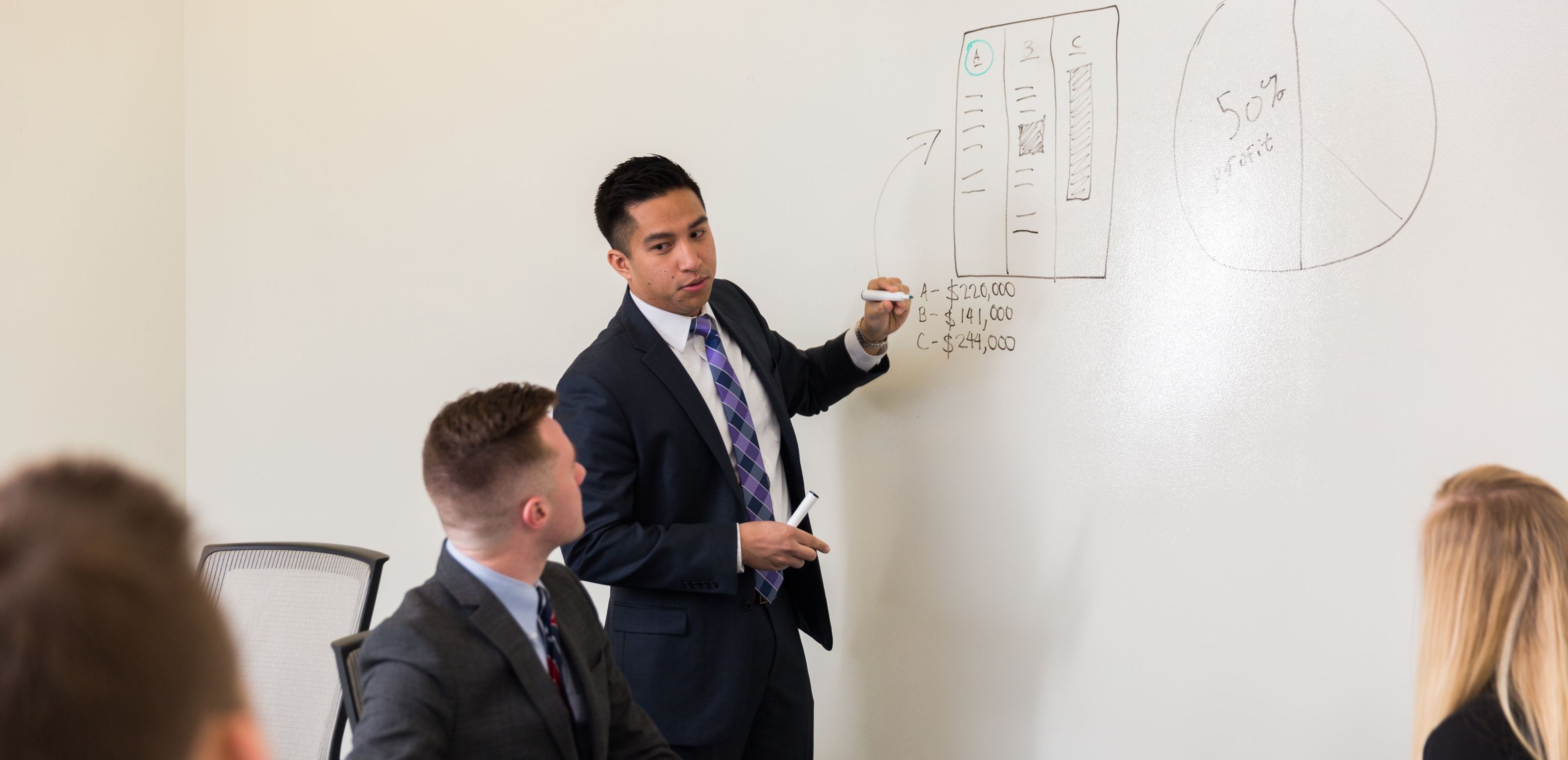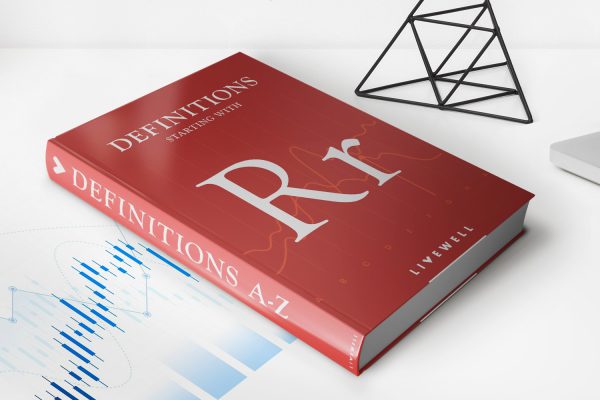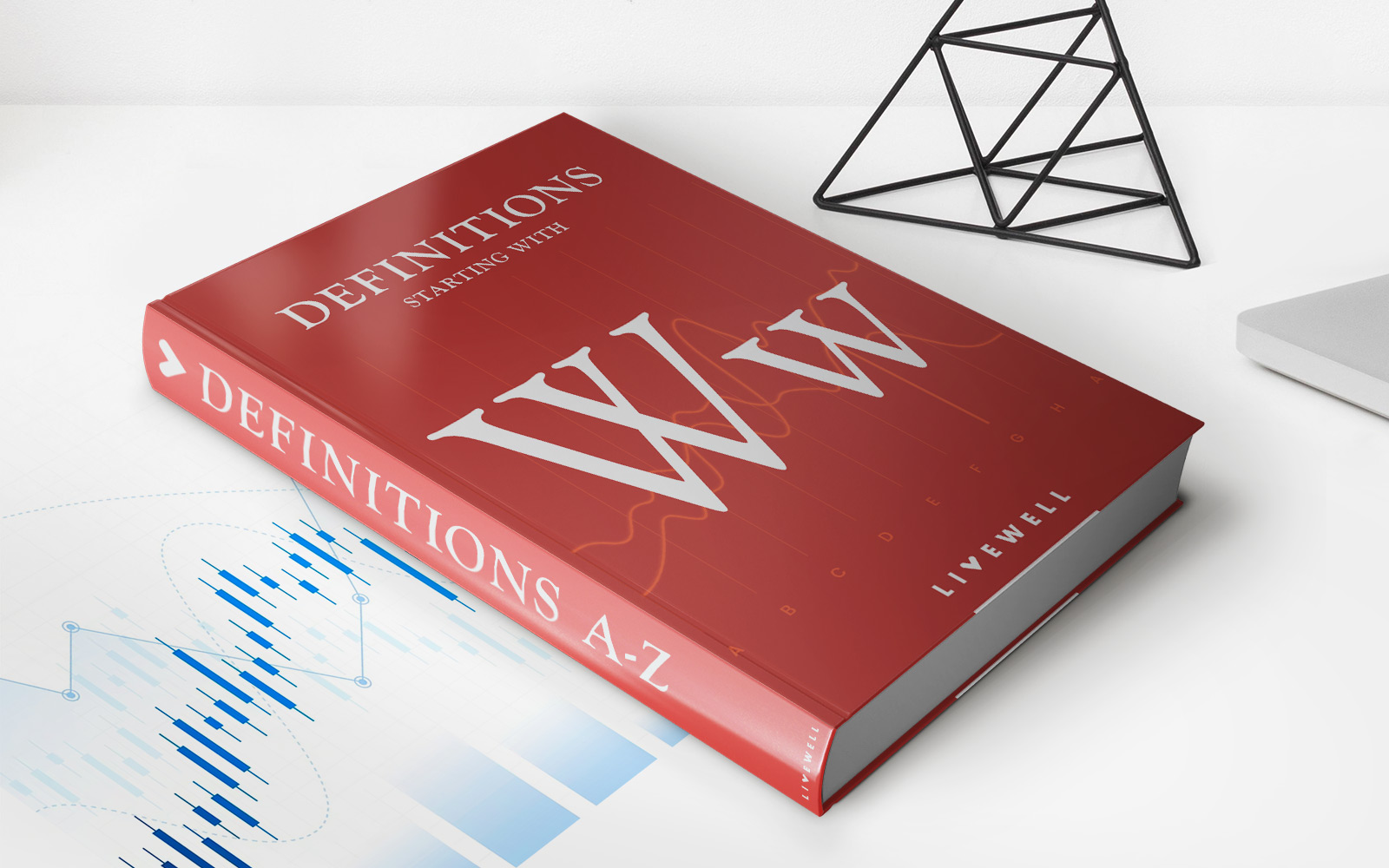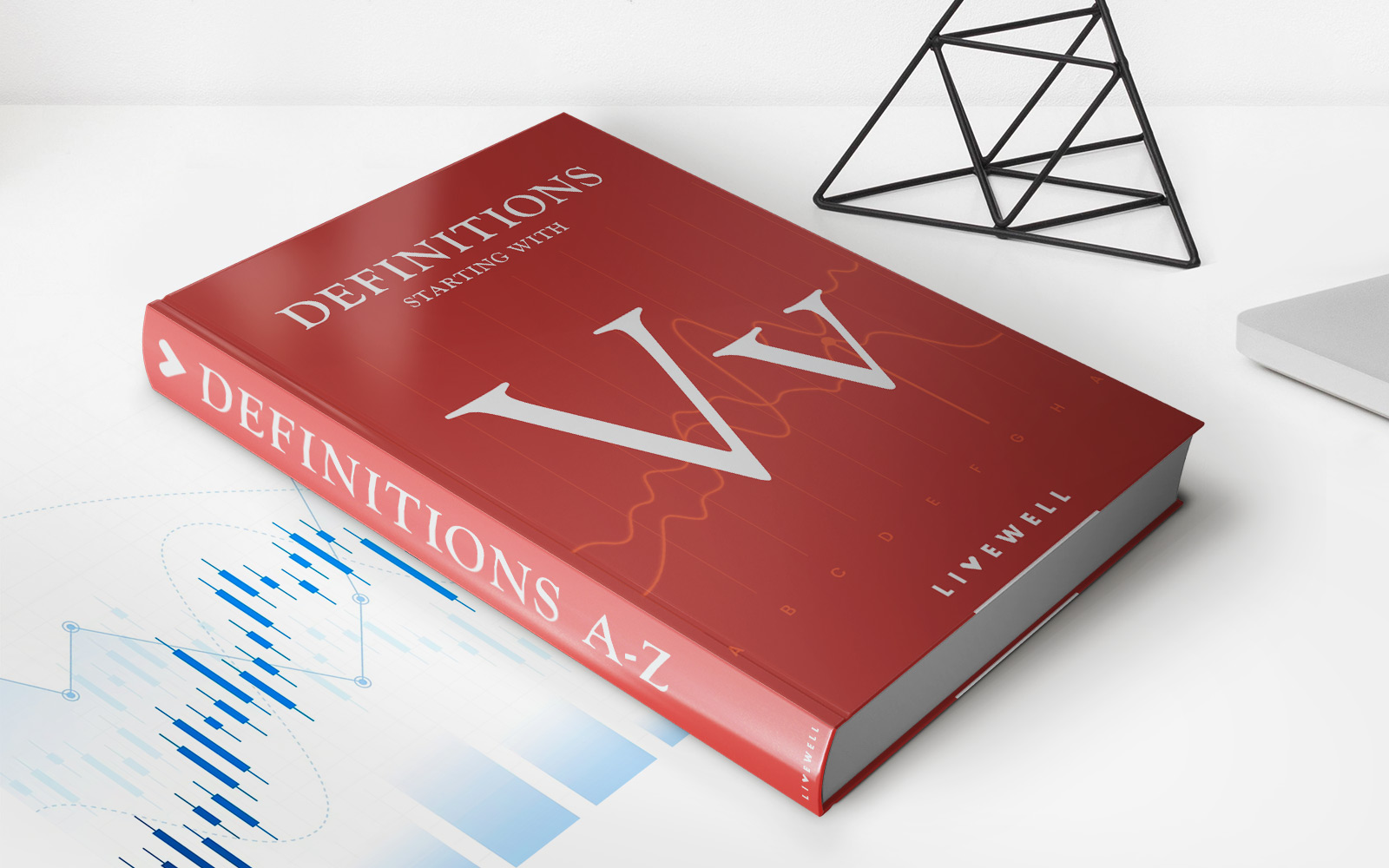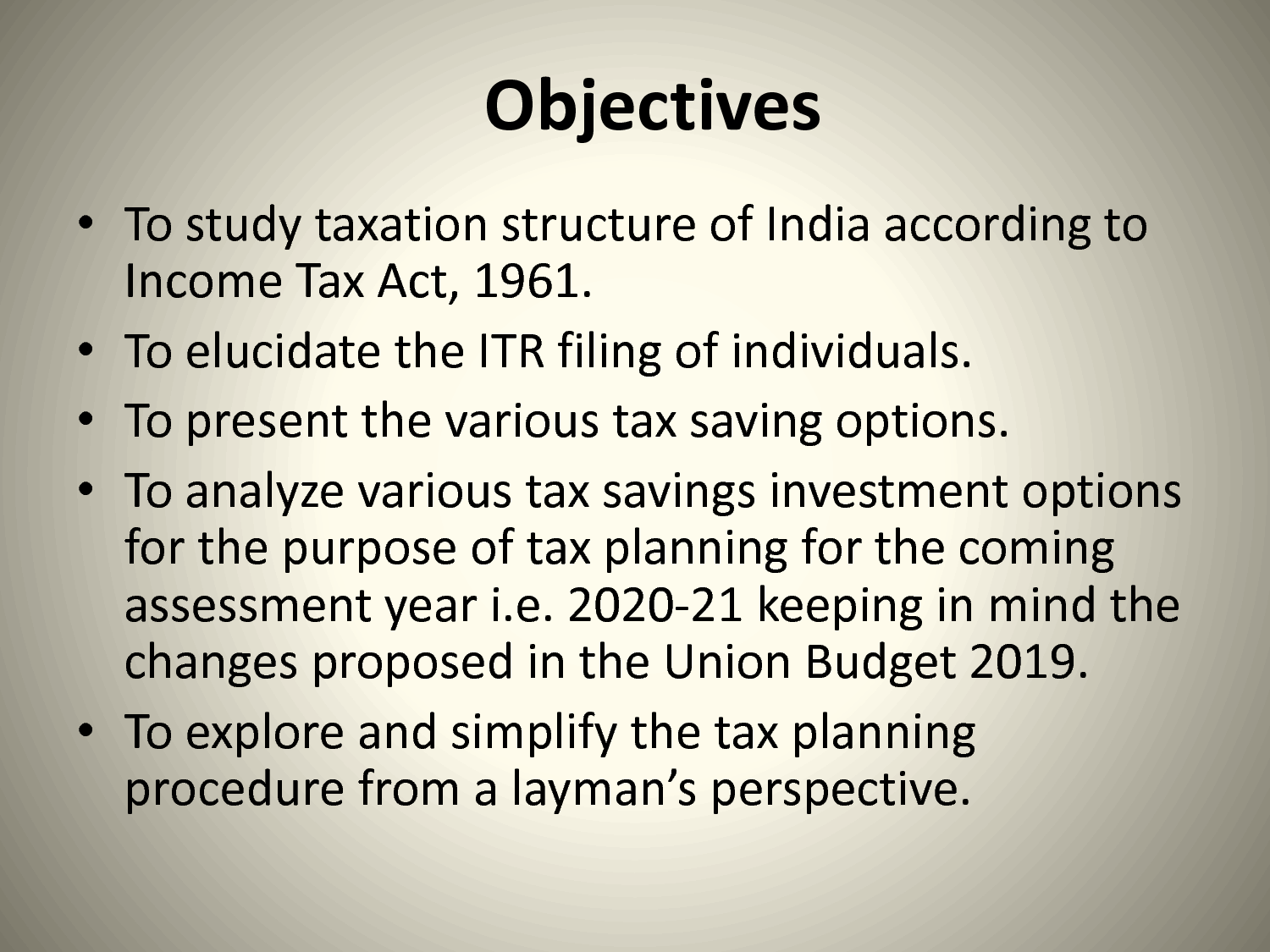

Finance
How To Become CPA Without Accounting Degree
Modified: December 30, 2023
Learn how to become a Certified Public Accountant (CPA) in the finance field, even without an accounting degree. Gain valuable insights and strategies to excel in your career path.
(Many of the links in this article redirect to a specific reviewed product. Your purchase of these products through affiliate links helps to generate commission for LiveWell, at no extra cost. Learn more)
Table of Contents
- Introduction
- Understanding the CPA Exam
- Education Requirements for CPA Certification
- Alternative Paths to CPA Certification
- Steps to Becoming a CPA Without an Accounting Degree
- Step 1: Assessing Your Eligibility
- Step 2: Completing the Required Coursework
- Step 3: Gaining Relevant Work Experience
- Step 4: Studying for the CPA Exam
- Step 5: Registering and Taking the CPA Exam
- Step 6: Applying for CPA Licensure
- Additional Tips for Success
- Conclusion
Introduction
Have you ever dreamed of becoming a Certified Public Accountant (CPA), but don’t have a background in accounting? Don’t worry – it’s not as impossible as you might think. While a traditional accounting degree is the most common path to CPA certification, there are alternative routes available for individuals with different educational backgrounds.
The role of a CPA is highly regarded in the finance industry. CPAs are trusted professionals who provide crucial financial and tax advice to businesses and individuals. They play a vital role in auditing financial statements, ensuring compliance with tax laws, and providing strategic financial planning.
If you’re interested in becoming a CPA without an accounting degree, this article will guide you through the necessary steps to achieve your goal. While it may require some additional effort, with determination and the right approach, you can obtain the prestigious CPA certification and advance your career in the finance industry.
In the following sections, we will explore the requirements for CPA certification, alternative paths to becoming a CPA, and the steps you need to take to become a CPA without an accounting degree. Whether you have a background in finance, business, or any other field, this article will provide insights into the options available to you.
It’s important to note that becoming a CPA requires dedication and commitment. The CPA exam is rigorous, and the certification process involves meeting specific education and experience requirements. However, with proper planning and preparation, you can overcome these challenges and achieve your goal of becoming a CPA.
So, are you ready to embark on the journey of becoming a CPA without an accounting degree? Let’s dive in and explore the possibilities that lie ahead!
Understanding the CPA Exam
The CPA exam is a comprehensive examination that tests the knowledge and skills required to become a Certified Public Accountant. It is administered by the American Institute of Certified Public Accountants (AICPA) and consists of four sections: Auditing and Attestation (AUD), Business Environment and Concepts (BEC), Financial Accounting and Reporting (FAR), and Regulation (REG).
Each section of the CPA exam is designed to assess specific areas of expertise necessary for a CPA. The AUD section focuses on auditing knowledge and procedures, while the BEC section covers business concepts and the economic environment. The FAR section tests your proficiency in financial accounting and reporting, and the REG section assesses your understanding of federal taxation and business law.
The CPA exam is known for its difficulty and has a low pass rate. Candidates must exhibit a deep understanding of the topics covered and demonstrate the ability to apply critical thinking and analysis skills to real-world scenarios. The exam is computer-based and consists of multiple-choice questions, task-based simulations, and written communication tasks.
It’s essential to develop a comprehensive study plan and allocate sufficient time to prepare for each section of the CPA exam. Many candidates enroll in review courses or study programs to help them better understand the material and gain essential exam-taking skills. Additionally, practice exams and sample questions can be invaluable resources for familiarizing yourself with the exam format and assessing your preparedness.
Passing the CPA exam is a significant milestone on the path to becoming a CPA. Most states require candidates to pass all four sections of the exam within a certain timeframe, usually 18 months to two years. However, the specific requirements may vary depending on the state in which you plan to be licensed.
It’s important to note that while passing the CPA exam is a critical step, it is not the only requirement for CPA certification. Candidates must also meet educational requirements, fulfill work experience criteria, and adhere to specific licensing regulations set by their state board of accountancy.
Now that we have a better understanding of the CPA exam, let’s explore the educational requirements for CPA certification and the alternative paths available for individuals without an accounting degree.
Education Requirements for CPA Certification
To become a Certified Public Accountant (CPA), you need to fulfill specific education requirements set by your state board of accountancy. These requirements typically involve obtaining a certain level of education in accounting and related subjects.
The most common educational pathway to becoming a CPA is earning a bachelor’s degree in accounting or a related field. This degree provides you with a solid foundation in core accounting principles, financial management, taxation, and auditing. It also helps you develop the analytical, problem-solving, and communication skills necessary for a successful career in accounting.
However, if you don’t have an accounting degree, you may still be able to meet the education requirements for CPA certification through alternative means. Many states allow candidates to fulfill these requirements by completing additional coursework in accounting and related subjects.
The specific coursework requirements vary by state, so it’s crucial to research the requirements set by your state board of accountancy. In general, these requirements may include a certain number of credit hours in accounting-related subjects, such as financial accounting, auditing, taxation, and managerial accounting.
If you have a degree in a non-accounting field, you may need to enroll in additional accounting courses at a college or university to meet the educational requirements. These courses can usually be taken on a part-time basis or through online programs, making it more accessible for individuals with work or other commitments.
It’s also worth noting that some states require candidates to have a specific number of overall credit hours in business-related courses. This requirement ensures that candidates have a well-rounded understanding of business principles and concepts beyond accounting.
In addition to the educational requirements, many states also require candidates to complete a certain number of credit hours in ethics-related courses. These ethics courses address the professional responsibilities and ethical considerations that CPAs must uphold.
It’s important to carefully review the educational requirements of your state board of accountancy to ensure you meet all the necessary coursework criteria. If you’re unsure about any aspect of the requirements, consider reaching out to your state board for clarification.
Now that we have discussed the educational requirements, let’s explore alternative paths available for individuals without an accounting degree who aspire to become CPAs.
Alternative Paths to CPA Certification
While a traditional accounting degree is the most common pathway to CPA certification, there are alternative paths available for individuals without an accounting degree. These alternative paths allow individuals with diverse educational backgrounds to demonstrate their knowledge and skills in accounting and gain eligibility for the CPA certification.
One alternative path is through a master’s degree in accounting or a related field. Many universities offer specialized master’s programs in accounting designed for individuals with non-accounting undergraduate degrees. These programs provide the necessary coursework to fulfill the educational requirements for CPA certification. They typically cover advanced topics in accounting, taxation, auditing, and financial management, enabling students to gain a comprehensive understanding of the field.
Another alternative path is through a certificate program in accounting. These programs are shorter in duration compared to a master’s degree and focus specifically on accounting coursework. Certificate programs are often designed for individuals who already have a bachelor’s degree in a non-accounting field, allowing them to gain the necessary accounting knowledge and meet the educational requirements for CPA certification.
Some states also offer the option of obtaining a certain number of credit hours in accounting through community college courses. These courses are generally more affordable and provide flexibility for individuals who prefer a more accessible and cost-effective route to meet the educational requirements.
If you have professional experience in accounting or a related field, you may be eligible for the CPA certification through the experience pathway. This pathway allows candidates to substitute a portion of the educational requirements with relevant work experience. The specific requirements for work experience vary by state, but typically involve a minimum number of years working in a position that requires accounting knowledge and skills.
It’s important to note that while alternative paths may be available, achieving CPA certification without an accounting degree requires a strong commitment to learning and acquiring the necessary knowledge and skills in accounting. It may involve additional coursework, self-study, or professional development opportunities to bridge any gaps in your educational background.
Before choosing an alternative path, it’s essential to research the specific requirements of your state board of accountancy and consult with an academic advisor or CPA mentor who can guide you through the process. They can help you assess your options and determine the most suitable pathway based on your educational background and career goals.
Now that we have explored alternative paths to CPA certification, let’s move on to the steps you need to take to become a CPA without an accounting degree.
Steps to Becoming a CPA Without an Accounting Degree
While becoming a Certified Public Accountant (CPA) without an accounting degree may require some additional steps and effort, it is certainly possible to achieve this prestigious certification. Here are the steps you need to follow to become a CPA without an accounting degree:
- Step 1: Assessing Your Eligibility
- Step 2: Completing the Required Coursework
- Step 3: Gaining Relevant Work Experience
- Step 4: Studying for the CPA Exam
- Step 5: Registering and Taking the CPA Exam
- Step 6: Applying for CPA Licensure
Start by researching the eligibility requirements of your state board of accountancy. Understand the educational and experience requirements, as well as any specific criteria related to alternative paths. Assess whether you meet the eligibility criteria or if you need to fulfill additional coursework or work experience before pursuing CPA certification.
If you do not have an accounting degree, you will need to complete the necessary coursework to meet the educational requirements for CPA certification. This may involve enrolling in a master’s program in accounting, a certificate program, or taking accounting courses at a community college or online. Ensure that the coursework covers the essential topics required for CPA certification, such as financial accounting, auditing, taxation, and managerial accounting.
While work experience requirements vary by state, most states require a certain number of years working in a position that requires accounting knowledge and skills. Gain relevant work experience by seeking internships, entry-level accounting jobs, or positions in finance departments. This will not only help you meet the experience requirements but also provide valuable practical knowledge that complements your educational background.
Prepare yourself for the challenging CPA exam by developing a comprehensive study plan. Consider enrolling in a CPA review course or using study materials that cover all four sections of the exam: Auditing and Attestation (AUD), Business Environment and Concepts (BEC), Financial Accounting and Reporting (FAR), and Regulation (REG). Dedicate sufficient time to study and practice using sample questions and practice exams to improve your chances of success.
Once you have completed the required coursework and gained the necessary work experience, register for the CPA exam with your state board of accountancy. Pay the exam fees and select the sections you want to take. Schedule the exam dates and locations that are convenient for you. Be sure to adhere to the exam timeline and allocate ample time for preparation before each section.
After successfully passing all four sections of the CPA exam, apply for CPA licensure with your state board of accountancy. Submit the required application forms, documentation, and fees as specified by your state. Some states may also require a background check or additional paperwork. Be sure to follow the instructions provided by your state board and provide all necessary information to complete the licensure process.
By following these steps and putting in the necessary effort and dedication, you can become a CPA without an accounting degree. It may require additional time and commitment, but the career opportunities and professional recognition that come with the CPA certification make it all worthwhile.
Now that you know the steps involved, it’s important to consider additional tips for success as you pursue your goal of becoming a CPA without an accounting degree.
Step 1: Assessing Your Eligibility
Before embarking on the journey to become a Certified Public Accountant (CPA) without an accounting degree, it is crucial to assess your eligibility. Every state has specific requirements and criteria for CPA certification, and understanding these requirements is the first step towards achieving your goal.
Start by thoroughly researching the eligibility requirements set by your state board of accountancy. These requirements typically outline the educational, experience, and additional criteria necessary to become a CPA. Determine whether you meet the basic eligibility criteria, or if there are any specific conditions you need to fulfill due to your non-accounting degree.
One of the main factors you need to evaluate is the educational requirement. Find out what level of education is necessary for CPA certification in your state. While a traditional accounting degree is often the standard, some states offer alternative paths to individuals without an accounting background. These alternative paths may require additional coursework or a certain number of credit hours in accounting-related subjects. Determine if you need to enroll in additional courses or programs to fulfill these educational requirements.
In addition to the educational requirements, familiarize yourself with the experience criteria set by your state board of accountancy. Determine the minimum number of years of relevant work experience required to become a CPA. This experience may need to be gained in positions that involve accounting knowledge and skills. If you currently lack the necessary work experience, you may need to seek out internships or entry-level roles in accounting or finance departments to fulfill this requirement.
Lastly, be aware of any other criteria or regulations outlined by your state board of accountancy. This could include specific ethics courses, professional development requirements, or background checks. Ensuring you are aware of and prepared for these additional criteria will help you navigate the certification process smoothly.
Assessing your eligibility is an essential first step because it sets the foundation for developing your plan of action. Once you have a clear understanding of the eligibility requirements, you can confidently move forward with the next steps, such as completing the required coursework, gaining relevant work experience, and preparing for the CPA exam.
Remember, each state has specific regulations, so it is crucial to review and consult with your state board of accountancy to ensure you have accurate and up-to-date information on the eligibility criteria. Their guidance will help you make informed decisions and ensure you meet the necessary requirements to become a CPA without an accounting degree.
Now that you’ve assessed your eligibility, it’s time to proceed to the next step: completing the required coursework.
Step 2: Completing the Required Coursework
Once you have assessed your eligibility to become a Certified Public Accountant (CPA) without an accounting degree, the next step is to complete the necessary coursework. Meeting the educational requirements set by your state board of accountancy is critical for obtaining CPA certification.
Start by researching the specific coursework requirements outlined by your state board. While a traditional accounting degree is the most common pathway, alternative paths are often available for individuals without an accounting background. These alternative paths may require additional coursework in accounting or related subjects to ensure you have the necessary knowledge and skills for the CPA profession.
Consider enrolling in a master’s degree in accounting or a related field. Many universities offer specialized master’s programs designed for individuals with non-accounting undergraduate degrees. These programs provide the required coursework to fulfill the educational requirements for CPA certification. They typically cover advanced topics in accounting, taxation, auditing, and financial management, giving you a comprehensive understanding of the field.
If a full master’s degree program is not feasible for you, explore certificate programs in accounting. These programs are shorter in duration and focus specifically on accounting coursework. They are often tailored for individuals with non-accounting backgrounds, allowing you to gain the necessary knowledge and skills to meet the CPA educational requirements.
Another option is to take individual accounting courses at a college or university. This can be done on a part-time basis or through online programs, making it accessible for individuals with work or other commitments. Ensure that the coursework covers essential topics required for CPA certification, such as financial accounting, auditing, taxation, and managerial accounting.
It’s also worth noting that some states require a specific number of credit hours in business-related courses in addition to accounting coursework. This requirement ensures that candidates have a well-rounded understanding of business principles and concepts in addition to accounting knowledge.
While completing the required coursework, take advantage of resources such as textbooks, online materials, and interactive learning platforms. Engage in interactive discussions and seek clarification from professors or instructors to deepen your understanding of the subject matter. Consider joining accounting clubs or organizations to network with professionals in the field and gain valuable insights.
Remember, the purpose of completing the required coursework is not just to fulfill the educational requirements but also to acquire the necessary knowledge and skills to succeed as a CPA. Take the coursework seriously, participate actively, and strive for a thorough understanding of the accounting principles and practices.
Now that you have completed the necessary coursework, let’s move on to the next step: gaining relevant work experience.
Step 3: Gaining Relevant Work Experience
Obtaining relevant work experience is a crucial step in becoming a Certified Public Accountant (CPA) without an accounting degree. Work experience not only helps you meet the requirements set by your state board of accountancy but also provides valuable practical knowledge and skills in the field of accounting.
Begin by familiarizing yourself with the work experience criteria specified by your state board. Each state has different requirements, but most commonly, candidates are expected to have a certain number of years of experience working in positions that require accounting knowledge and skills. This typically involves working in roles such as accounting, auditing, taxation, financial analysis, or other related fields.
When seeking relevant work experience, consider internships or entry-level positions in accounting firms or finance departments. These opportunities allow you to gain hands-on experience in various aspects of the accounting profession, including financial statement analysis, tax preparation, internal controls, and auditing procedures. Look for companies that provide exposure to different industries and clients to broaden your experience and understanding of diverse accounting practices.
If you have already been working in an accounting or finance-related role, be sure to assess whether your current position meets the experience criteria set by your state board. Keep track of your responsibilities and tasks, as well as the skills and knowledge you have acquired. This information will be valuable when applying for CPA certification and demonstrating your eligibility.
Throughout your work experience, strive not only to learn and apply accounting principles, but also to develop important professional skills such as critical thinking, problem-solving, communication, and teamwork. These skills are highly valued in the accounting profession and will contribute to your success as a CPA.
While gaining work experience, consider seeking out opportunities for professional development. Attend accounting seminars, workshops, or conferences to stay updated on industry trends and developments. Engage in continuous learning by reading accounting journals, publications, and online resources. By demonstrating a commitment to ongoing professional development, you showcase your dedication to staying current and maintaining high professional standards as a CPA.
Keep in mind that the exact work experience requirements may vary by state, so it’s important to refer to the guidelines provided by your state board of accountancy. Consult with a mentor or supervisor who can guide you through the work experience process and provide the necessary documentation when applying for CPA licensure.
With relevant work experience under your belt, you’re one step closer to becoming a CPA. The next crucial step is to prepare for and successfully pass the CPA exam, which we’ll explore in the next section.
Step 4: Studying for the CPA Exam
Studying for the Certified Public Accountant (CPA) exam is a crucial step on your journey to becoming a CPA without an accounting degree. The CPA exam is known for its rigorous content and challenging format, so it requires thorough preparation and focused studying. Here are some key steps to help you effectively prepare for the exam:
- Create a Study Plan: Develop a detailed study plan that outlines your study schedule, breaks down the topics and sections you need to cover, and sets target dates for completing each section. Consider factors such as work commitments, personal obligations, and your preferred learning style when creating your plan.
- Utilize Review Materials: Invest in high-quality CPA review materials, such as textbooks, study guides, online courses, and practice exams. These resources will help you understand the exam structure, review key concepts, and practice questions similar to those on the actual exam. Choose materials that align with your learning style and preferences.
- Focus on Weak Areas: Identify your areas of weakness and spend more time studying those subjects. Allocate additional study sessions or resources to thoroughly grasp the topics you find challenging. This will help you build a solid foundation of knowledge across all areas tested in the CPA exam.
- Create a Study Routine: Establish a consistent study routine that suits your schedule and maximizes productivity. Determine the best time of day for you to concentrate and absorb information. Consider breaking your study sessions into smaller, manageable chunks to maintain focus and avoid burnout.
- Practice Time Management: Time management is crucial during the CPA exam. Familiarize yourself with the time limits for each section and practice answering questions within those time constraints. This will help you develop effective strategies for pacing yourself and ensuring you can complete each section within the allocated time.
- Take Practice Exams: Regularly take practice exams to assess your progress, identify areas of improvement, and get a feel for the exam format. Practice exams will help you familiarize yourself with the types of questions you can expect and build confidence in your ability to tackle them.
- Join Study Groups or Online Communities: Consider joining or forming study groups with fellow CPA candidates. Collaborating with others can provide support, motivation, and the opportunity to discuss challenging concepts or share study strategies. Online communities and forums dedicated to CPA exam preparation can also be valuable resources for tips and guidance.
- Manage Exam Anxiety: As the exam date approaches, it’s natural to feel some anxiety. Practice stress management techniques such as deep breathing, exercise, and adequate sleep to keep your mind fresh and focused. Trust in your preparation and stay positive, knowing that you have put in the effort to succeed.
Remember, consistent and thorough preparation is key to performing well on the CPA exam. Develop a study routine that works for you, leverage quality review materials, and regularly assess your progress to adjust your study plan as needed. With dedication, focus, and a well-structured approach, you can confidently tackle the CPA exam and move closer to attaining your CPA certification.
In the next step, we will explore the process of registering and taking the CPA exam.
Step 5: Registering and Taking the CPA Exam
Once you have completed the necessary coursework and prepared thoroughly for the Certified Public Accountant (CPA) exam, the next step is to register and take the exam. The registration process may vary slightly depending on your jurisdiction, so it’s important to familiarize yourself with your state’s specific requirements. Here are the general steps involved:
- Review Exam Requirements: Familiarize yourself with the exam requirements set by your state board of accountancy. Understand the eligibility criteria, including educational requirements, work experience, and any additional specifications.
- Prepare Required Documents: Gather the necessary documents for exam registration. This typically includes proof of education and transcripts, documents verifying work experience (if required), and identification documents as specified by your jurisdiction.
- Apply for Exam Eligibility: Submit your application for exam eligibility to your state board of accountancy. This process involves providing the required documents and paying the applicable fees. Ensure that you have met all eligibility criteria outlined by your state board before applying.
- Receive Exam Authorization: Once your application is approved, you will receive an Authorization to Test (ATT) from your state board. This document provides you with the authorization to schedule and take the CPA exam.
- Schedule Exam Sections: Use the ATT to schedule the sections of the CPA exam you wish to take. The CPA exam is divided into four sections: Auditing and Attestation (AUD), Business Environment and Concepts (BEC), Financial Accounting and Reporting (FAR), and Regulation (REG). You can schedule the sections individually or all at once, depending on your preference and readiness.
- Pay Exam Fees: Pay the necessary exam fees as required by your state board. The fees typically cover the cost of each exam section. Be aware of the payment deadlines and ensure you submit your payment promptly to secure your exam appointments.
- Prepare for Exam Day: As the exam dates approach, continue your exam preparation by reviewing the material, taking practice exams, and focusing on areas of weakness. Be sure to familiarize yourself with the exam format, including the multiple-choice questions, task-based simulations, and written communication tasks that may be part of the exam.
- Take the CPA Exam: On the scheduled exam days, arrive at the designated testing center with the required identification documents. Follow the instructions provided by the testing center staff and complete the exam sections within the allocated time. Remain focused, manage your time effectively, and answer the questions to the best of your ability.
After completing each section of the CPA exam, you will receive a score report. This report indicates whether you passed or failed the section. Upon successfully passing all four sections of the exam within the designated timeframe specified by your state board, you will be one step closer to achieving your goal of becoming a CPA.
Remember, the CPA exam requires thorough preparation, concentration, and time management. Stay confident, trust in your preparation, and remain determined throughout the exam process. With a well-executed plan, dedication, and perseverance, you will maximize your chances of success.
In the final step, we will explore the process of applying for CPA licensure once you have successfully passed the CPA exam.
Step 6: Applying for CPA Licensure
Congratulations on successfully passing all four sections of the Certified Public Accountant (CPA) exam! Now it’s time to take the final step in becoming a licensed CPA: applying for CPA licensure. The process may vary slightly depending on your jurisdiction, so it’s essential to familiarize yourself with your state’s specific requirements. Here are the general steps involved:
- Confirm Additional Requirements: Research and confirm any additional requirements set by your state board regarding CPA licensure. These requirements may include fulfilling specific educational criteria, work experience hours, and character references.
- Gather Required Documents: Collect the necessary documents for your licensure application. This typically includes your CPA exam scores, educational transcripts, proof of work experience (if applicable), and any additional documentation required by your state board.
- Complete the Application: Fill out the CPA licensure application provided by your state board. Submit the application along with the required documents and pay the applicable fees. Ensure that you complete all sections of the application accurately and include all requested information.
- Pass the Ethics Exam (if required): Some states require CPA candidates to pass an ethics exam as part of the licensure process. If your state has this requirement, study for and pass the ethics exam to fulfill this criterion.
- Background Check and Character References: Some states may require a background check or character references to ensure your professional integrity and suitability for CPA licensure. Follow the instructions provided by your state board regarding these requirements, provide the necessary information, and comply with any additional requests.
- Wait for Board Approval: Once you have submitted your CPA licensure application and all supporting documentation, the state board will review your application. The review process may take some time, so be patient. Ensure you promptly respond to any requests for additional information or clarifications from the state board.
- Receive Your CPA License: After your application is approved by the state board, you will receive your CPA license. This license grants you the legal authority to practice as a CPA in your state. Celebrate this significant accomplishment!
It’s important to maintain your CPA license by adhering to your state’s continuing professional education (CPE) requirements. Most states require CPAs to complete a certain number of CPE hours annually or within a specific renewal period. Stay updated on the CPE requirements of your state and participate in relevant professional development activities to maintain your expertise and fulfill the licensing obligations.
Remember, once you have received your CPA license, it is essential to uphold the highest professional standards and ethics in your accounting practice. Being a CPA comes with great responsibility, and maintaining your professional integrity is crucial for trust and confidence in the profession.
Congratulations again on reaching this significant milestone in your journey to becoming a CPA! Your hard work, dedication, and commitment have paid off, and you are now authorized to practice as a Certified Public Accountant. Embrace the opportunities that lie ahead and continue to expand your knowledge, skills, and expertise in the accounting profession.
If you follow these steps and fulfill the requirements set by your state board, you are well on your way to achieving your goal of becoming a successful CPA.
Now that you have completed the process of applying for CPA licensure, it’s time to conclude this guide on becoming a CPA without an accounting degree. Best of luck in your future endeavors as a Certified Public Accountant!
Additional Tips for Success
Becoming a Certified Public Accountant (CPA) without an accounting degree may require extra effort and determination, but it is entirely achievable. Here are some additional tips to enhance your chances of success on your journey:
- Develop a Support System: Surround yourself with a supportive network of family, friends, mentors, and peers who believe in your capabilities. They can provide encouragement, guidance, and accountability throughout the process.
- Stay Organized: Create a detailed study schedule, maintain a planner or digital calendar, and keep track of important deadlines. Staying organized will help you manage your time effectively and ensure that you meet all requirements in a timely manner.
- Seek Guidance: Reach out to professionals who have successfully navigated the path to becoming a CPA without an accounting degree. They can provide valuable insights, advice, and strategies to help you overcome any challenges you may encounter.
- Utilize Technology and Study Resources: Take advantage of technology to simplify and enhance your study process. Use CPA exam review materials, online courses, mobile apps, and other digital resources to facilitate learning and reinforce your understanding of accounting concepts.
- Practice Time Management: Develop effective time management skills to balance your study commitments with other obligations. Allocate specific blocks of time for studying, taking breaks, and engaging in other activities to maintain a healthy work-life balance.
- Take Care of Yourself: Prioritize self-care to maintain your physical and mental well-being. Get sufficient sleep, exercise regularly, eat nutritious meals, and take breaks when needed. Taking care of yourself will enhance your focus, concentration, and overall performance.
- Reward Yourself: Celebrate milestones along the way to keep yourself motivated and focused. Reward yourself after completing each section of the CPA exam or achieving specific study goals. Treat yourself to something you enjoy as a token of your hard work and dedication.
- Stay Updated: Stay aware of changes and updates in accounting standards, laws, and regulations. Subscribe to relevant newsletters, journals, and professional publications to stay informed about industry trends and developments.
- Stay Persistent: Remain committed to your goal, even in the face of challenges or setbacks. Persistency is key to achieving success. Keep your motivation high and remind yourself of the reasons why you embarked on this journey in the first place.
By implementing these additional tips in conjunction with the steps outlined in this guide, you will increase your chances of becoming a successful CPA without an accounting degree. Remember, becoming a CPA requires dedication, hard work, and a continuous commitment to professional growth.
Stay focused, maintain a positive mindset, and let your passion for accounting drive you towards achieving your goal. With determination and perseverance, you will overcome any obstacles and emerge as a qualified and respected Certified Public Accountant.
Best of luck on your journey to becoming a CPA!
With this section concluded, we have provided a comprehensive guide on becoming a CPA without an accounting degree. Remember to customize your approach based on your individual circumstances and consult with your state board of accountancy for specific requirements unique to your jurisdiction.
Congratulations on taking the first steps towards an exciting and rewarding career in accounting!
Conclusion
Obtaining the prestigious Certifed Public Accountant (CPA) certification without an accounting degree is an attainable goal with the right mindset, determination, and a well-executed plan. While a traditional accounting degree may be the most common path, there are alternative routes available for individuals with diverse educational backgrounds.
In this comprehensive guide, we have explored the steps involved in becoming a CPA without an accounting degree. We started by understanding the CPA exam and its rigorous requirements. Then, we delved into the educational requirements for CPA certification and the alternative paths available to individuals without an accounting degree. We covered the steps of assessing eligibility, completing the necessary coursework, gaining relevant work experience, studying for the CPA exam, registering and taking the exam, and finally applying for CPA licensure.
Throughout the journey, we also provided additional tips for success, reminding you of the importance of a support system, staying organized, seeking guidance, utilizing technology and study resources, practicing time management, taking care of yourself, and staying persistent in pursuing your goals.
Remember, achieving CPA certification without an accounting degree requires dedication, commitment, and continuous learning. It may require additional effort to bridge any gaps in knowledge or experience. However, with the right resources and mindset, you can overcome any challenges and become a highly qualified CPA.
Always stay informed about the specific requirements set by your state board of accountancy, as they may have unique criteria and guidelines. Adapt the recommendations provided in this guide to suit your individual circumstances, and seek guidance from professionals who have successfully followed the same path.
By becoming a CPA without an accounting degree, you are opening doors to exciting career opportunities in finance, accounting, auditing, and beyond. Your expertise and knowledge will be highly valued in various industries and organizations as you contribute to their financial success.
Congratulations on taking the first steps towards an enriching and fulfilling career as a CPA. Embrace the challenges, enjoy the learning process, and let your passion for accounting guide you to excellence.
Best of luck on your journey, and congratulations on your decision to pursue the remarkable goal of becoming a CPA without an accounting degree!





